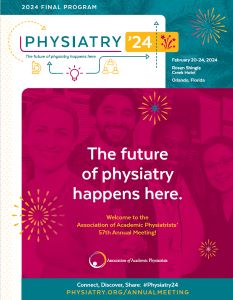Musculoskeletal
Poster Gallery
507 - Metformin improves wounded tendon healing by enhancing AMPK activation and decreasing alpha-SMA+ cell migration
Thursday, February 22, 2024
5:00 PM - 6:30 PM EDT
- RB
Roshawn Brown, MD
Resident
UPMC
Pittsburgh, Pennsylvania, United States
Presenting Author(s)
Objectives: Tendon injury is common, and the injured tendon has a limited healing ability. High levels of α-smooth muscle actin (α-SMA) and collagen III can result in loose collagen fibers that cause scar formation. Adenosine monophosphate-activated protein kinase (AMPK) has been linked to the regulation of inflammatory signaling. The activation of AMPK can inhibit scar tissue formation. Metformin (Met) has been reported to play a role in the inflammatory cascade. In this study, we investigated the effect of Met on tendon healing using transgenic mice.
Design: A window defect was created in the Achilles tendon of all mice by a 0.5 mm diameter biopsy puncher. The mice in group-1 received intraperitoneal injection with saline daily for 6 weeks; group-2 received Met for 14 days before surgery and saline for 4 weeks after surgery. group 3 received saline for 14 days before surgery and Met for 4 weeks. Group-4 received Met for 6 weeks. The animals were sacrificed at day-30 post-surgery.
Results: H & E staining results indicated that the wounded tendon treated with saline at week-4 post-surgery formed scar tissue with high density cells and poorly organized, loose collagen fibers. Well organized tendon structure with dense collagen fibers were found in the tendons of the mice with Met injection. Immunostaining showed that the number of a-SMA+ cells increased in the wound area of saline injection mice. However, less a-SMA+ cells are found in the wounded tendons of mice with Met injection compared to saline treated group. High levels of AMPK were positively stained in metformin injected mouse tendons; however, very low levels of AMPK were positively stained in saline treated mouse tendons.
Conclusions: Metformin administration may improve wounded tendon healing via inhibiting a-SMA+ cell migration and enhancing AMPK activation, reducing scar tissue formation and improving the healing process.
Design: A window defect was created in the Achilles tendon of all mice by a 0.5 mm diameter biopsy puncher. The mice in group-1 received intraperitoneal injection with saline daily for 6 weeks; group-2 received Met for 14 days before surgery and saline for 4 weeks after surgery. group 3 received saline for 14 days before surgery and Met for 4 weeks. Group-4 received Met for 6 weeks. The animals were sacrificed at day-30 post-surgery.
Results: H & E staining results indicated that the wounded tendon treated with saline at week-4 post-surgery formed scar tissue with high density cells and poorly organized, loose collagen fibers. Well organized tendon structure with dense collagen fibers were found in the tendons of the mice with Met injection. Immunostaining showed that the number of a-SMA+ cells increased in the wound area of saline injection mice. However, less a-SMA+ cells are found in the wounded tendons of mice with Met injection compared to saline treated group. High levels of AMPK were positively stained in metformin injected mouse tendons; however, very low levels of AMPK were positively stained in saline treated mouse tendons.
Conclusions: Metformin administration may improve wounded tendon healing via inhibiting a-SMA+ cell migration and enhancing AMPK activation, reducing scar tissue formation and improving the healing process.

